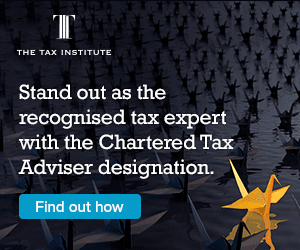Performance reviews can be nerve-wracking and many struggle with the process. Here are 11 tips to make sure your next review is productive and rewarding.
Supporting employees and providing an atmosphere and structure in which they can strive is one of the most important and challenging parts of building a business. Most organisations use the performance review process as one of the ways to do this.
However, even a year jammed full of achievement can be anxiety-inducing around performance review time.
Remove unwanted surprises and calm your nerves with a solid plan on what to do before, during and after your performance review.
Before the big day
- Keep in mind that the process is designed to support you. Start by looking at the bigger picture and your career, not just your current role. This is where having a clear development plan can help map out the course of your career both within and outside your organisation.
- If it’s your first review at the company, put your anxiety at ease by finding out what to expect. Your performance review could be anything from a documented conversation to a 360-degree review process, so ask some questions and find out. Request a copy of your written evaluation before the in-person meeting if it’s available for you.
- Have a growth mindset. A performance review is a time to work with your boss to figure out how you can grow and improve as a member of your team. You need to believe your talents can be developed (through hard work, good strategies, and input from others). Feedback is a good thing.
- See the bigger picture. The long-term organisational (and departmental) goals in which your performance review is embedded should be clear and well-understood. A focus on the long-term goals will lead to a more honest conversation of how you can better contribute to the achievement of these objectives.
- Know your strengths, weaknesses and successes. A performance review is a two-way conversation between your manager and yourself. Make sure you’re prepared to discuss your strengths, weaknesses and gaps at length. Think strategically how you can leverage your strengths in the team and wider organisation – what projects would you like to be involved in, what efficiencies can you introduce through new software or processes, how can you support your leaders' strategic goals and objectives.
Getting your honest suggestions about how to help you do your best work is invaluable. Equally, you may be closer to some of the business operations so sharing what isn’t working – and how to make it better – will also be helpful.
- Bring examples. Keeping an ongoing achievement list and examples of positive feedback you’ve received throughout the year will reduce the time scrambling for information. Back your ‘wins’ with stats where possible – what was the positive impact of your achievement to business performance, customer satisfaction or team efficiency?
- Be proactive and solicit feedback throughout the year. After the close of each project or when someone compliments your work, ask them to elaborate so you can capture it for this very occasion.
During your performance review
Explore formal learning opportunities or professional development that will help you add real value to your customers and support colleagues.
Doing so will could not only lead to a potential opportunity to increase the fulfilment in your role, but it also demonstrates your continued interest in the company and its strategy.
The big event has come and gone. Now what?
10. Come up with a specific plan for improvement. Based on the feedback received in the performance review, develop your professional plan for the year and use the time with your manager to make sure the plan matches your team’s needs and priorities.
Going out of the performance review, you should both be on the same page with what you are going to be doing, what you’re going to be learning and how your manager and colleagues can support you in reaching your agreed-upon objectives.
11. Finally, set check-ins to measure progress. Your development is a mutual goal but owned by you. It’s time to take accountability.
Leading a team during performance appraisals
The most comforting thing a manager has ever said to me before a review is: “Don’t worry. There won’t be any surprises.” Give your team the best chance of a productive review by providing them adequate assurance (where possible) and guiding them on the sorts of information they need to bring to the meeting.
Focus on strengths instead of weaknesses. One of the reasons why there is so much anxiety around performance review time is because they often only focus on areas for improvement. Rather than only looking at areas your team need to fix and what they did ‘wrong’, consider boosting engagement by focusing on how to use their strengths for greater benefit to the team and beyond.
Ask your employee what makes them happy (or unhappy) in their role. It lets them know that you care but can also give you ways to maximise their happiness when you have this information.
Performance reviews might never be a favourite time of year, but if you know what to expect, plan well in advance, go in with the right mindset, you’ll limit any surprises and might even find they are more productive.
Stand out as the recognised tax expert. The Chartered Tax Adviser (CTA) designation is the premier standard of technical excellence.










